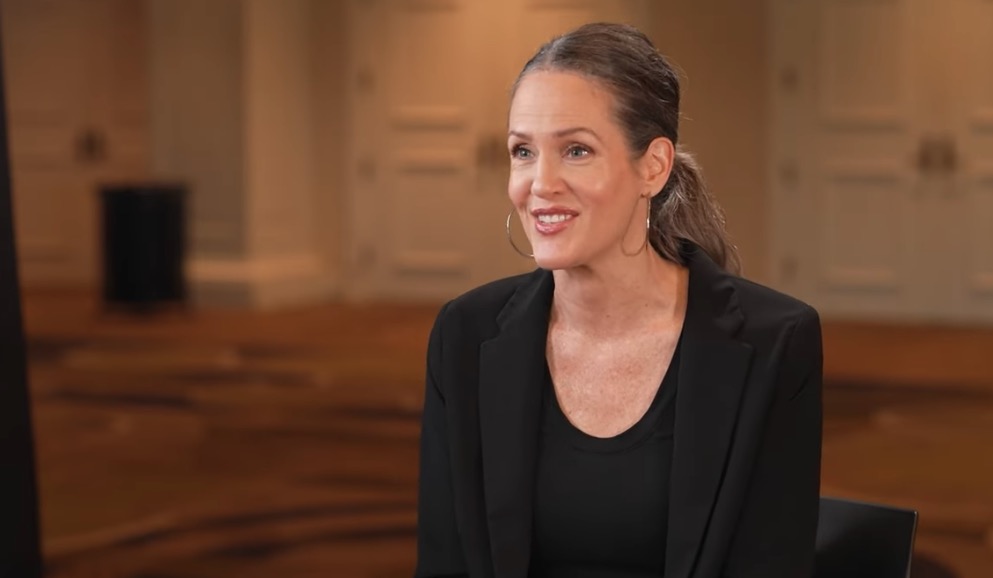“Deconstruction” has become one of the most frequently spouted faith terms of late, sparking many reactions from Christians and non-Christians alike.
Listen to them on the latest episode of “Quick Start” 👇
Author Alisa Childers, who addresses the subject in her latest book, “The Deconstruction of Christianity: What It Is, Why It’s Destructive, and How to Respond,” told CBN News why she believes this pattern of people unpacking and deconstructing their faith has become so prevalent.
“I do think it’s a fad, although a lot of people would say it’s not a fad,” she said. “It’s actually this real experience that happens, but I think it can be proven to be a fad, because you can trace it back through its philosophical roots in the postmodern philosophies that gained steam in the 60s.”
Childers said there are some legitimate issues at the core of deconstruction, noting spiritual abuse, legalism during people’s childhoods, or even some individuals’ quest to find ways to shed themselves of “bad ideas” while being able to hold on to the “good ones.”
Despite some viable motivations that might lead a person into deconstruction, Childers said overarching issues related to it must be addressed.
“The problem with what we see in the deconstruction movement is that, very often, what people decide are bad beliefs are actually historic Christian doctrines like original sin and the sacrificial death of Jesus on the cross,” she said. “And theological … doctrines that really define Christianity.”
Childers said social media has helped solidify deconstruction as a fad. She posited culture likely wouldn’t have the rampant deconstruction movement in its current form without social media tools.
“I think there’s a little bit of a social contagion aspect to it as well, because that hashtag of ‘deconstruction’ — there’s a lot of false information in there,” she said. “There’s a lot of claims that are made about Christian theology that are not true.”
Nonetheless, this inaccurate information can hold sway over hearts and minds, ushering people further out of historic Christianity and into an abyss.
One of the challenges when it comes to deconstruction, of course, is that the word carries different meanings for various people. Childers said it’s essential to ask and understand what someone means when he or she uses the word.
“You might have one person who says deconstruction is when you take the faith tradition you were given as a child, and you measure it against Scripture — you go to Scripture and you say, ‘OK, I think that was an unbiblical belief. I want to get rid of that one,'” she said. “Other people mean it to just be engaging maybe some serious, nagging doubts they’ve been having.”
Childers said it is good to positively engage doubt, ask tough questions, and test the faith tradition given by parents against Scripture. Unfortunately, she said some people do something quite different; they experience a “shift of authority from an external source of authority for truth to the authority of the self.”
And it’s that turn to the self Childers believes is having a diabolical impact on individuals and culture.
“It’s having devastating effects, because it’s causing people to really turn against their ultimate purpose, which is to love God, to worship Him, and be in His presence,” she said. “And what we’re doing culturally is basically telling people, ‘You should follow your heart, because what you find in there is going to be good.'”
Of course, the heart often leads people in directions that contradict the Lord’s truth and goodness. The solution isn’t to turn inward, but to “repent and turn to Christ,” she said.
“With this whole kind of ‘follow your heart, live your truth’ movement, it’s caused people to turn very inward and just go with what feels right to them,” Childers said. “And that is actually what we see in the deconstruction movement, because theological beliefs are not assessed based on if they line up with Scripture or not.”
Ultimately, Childers said truth isn’t relative, despite culture’s quest to treat it that way.
Childers is hoping, “The Deconstruction of Christianity: What It Is, Why It’s Destructive, and How to Respond,” which she co-wrote with Tim Barnett, helps the parents, pastors, and family members of people going through deconstruction.
“Our hope is to help the church understand what this is, what is happening in the deconstruction movement, and then hopefully equip them to be able to minister to and walk with people in their lives who are going through it,” she said.
***As the number of voices facing big-tech censorship continues to grow, please sign up for Faithwire’s daily newsletter and download the CBN News app, developed by our parent company, to stay up-to-date with the latest news from a distinctly Christian perspective.***



